If you have been following our socia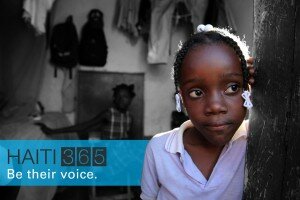 l media channels lately, you may be asking yourself what is this #Haiti365 stuff? It is a good thing you are reading our blog today because we are about to tell you exactly why we are talking about this and why HandsOn Network love this campaign.
l media channels lately, you may be asking yourself what is this #Haiti365 stuff? It is a good thing you are reading our blog today because we are about to tell you exactly why we are talking about this and why HandsOn Network love this campaign.
For the second anniversary of the Haiti earthquake, UNICEF USA wanted to show the country’s resilience and bring to light the daily challenges Haitian people still face daily. UNICEF USA decided to solve their desire through the use of social media to bring attention back to Haiti.
UNICEF USA brought the voices of Haiti’s youth to the attention of viewers through their Haiti365 Conversation project. Haiti365 has become a unique forum for viewers to respond to children’s questions about various topics such as gender equality, education, and Justin Bieber. UNICEF believes that youth are central to the recovery of Haiti, and through this project they can bring current issues to the world’s attention.
How did this project get started?
Last summer, UNICEF selected a group of young people to attend a high level summit on youth at the United Nations. For most of the Haitian youth who attended the summit, it was their first time ever visiting the United States.
The children had many questions for the General Assembly and the United Nations Round Table discussion on climate change about the state of their country and its recovery.
After the children addressed the United Nations, they had questions for their international peers. That is where the Haiti365 conversation comes into action.
How can you get involved?
Interested viewers can visit the Haiti365 website to join the conversation. Visitors to the website have the option of listening and responding to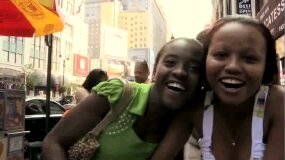 one or more of the 12 questions posed by Haitian youth. Those asking the questions are either children in the range of 9 to 11 years old or young adults 19 to 22 years old.
one or more of the 12 questions posed by Haitian youth. Those asking the questions are either children in the range of 9 to 11 years old or young adults 19 to 22 years old.
Viewers have the option of responding to the videos by text or video recording. Viewers also have the option of asking a peer in Haiti a question of interest. UNICEF USA will also send out text messages with questions from Haitian youth that can be answered by subscribers. Those who respond to the questions also have the option of responding in Creole or English depending on preference.
This campaign is a great way to get the conversation about Haiti’s recovery started. Who knows the impact that your question or answer can make on the future! UNICEF’s campaign is a great way to raise awareness for the country of Haiti. Please join us in bringing attention to the conversation; your participation will make a huge impression especially on the children of Haiti!
About UNICEF:
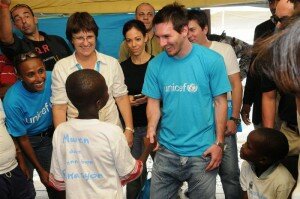 UNICEF has saved more children’s lives than any other humanitarian organization in the world. Working in more than 150 countries, UNICEF provides children with health and immunizations, clean water, nutrition, education, emergency and disaster relief, and more. The U.S. Fund for UNICEF supports UNICEF’s work through fundraising, advocacy, and education in the United States.
UNICEF has saved more children’s lives than any other humanitarian organization in the world. Working in more than 150 countries, UNICEF provides children with health and immunizations, clean water, nutrition, education, emergency and disaster relief, and more. The U.S. Fund for UNICEF supports UNICEF’s work through fundraising, advocacy, and education in the United States.
UNICEF is at the forefront of efforts to reduce child mortality worldwide. There has been substantial progress: the annual number of under-five deaths dropped from more than 12 million in 1990 to 7.6 million in 2010. But still, 21,000 children die each day from preventable causes. Our mission is to do whatever it takes to make that number zero by giving children the essentials for a safe and healthy childhood.


 by Veronique Parages, Skills-Based Volunteer Program Director,
by Veronique Parages, Skills-Based Volunteer Program Director, 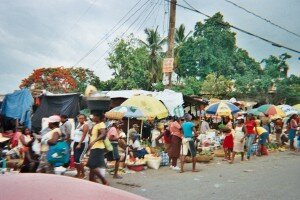 At one point, I shared the tap tap with three women and one of them seemed very poor.
At one point, I shared the tap tap with three women and one of them seemed very poor.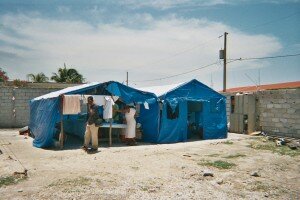
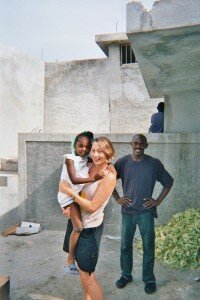 My little friend
My little friend Quiet time
Quiet time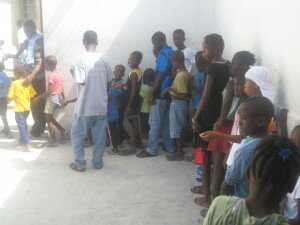 I am so happy I did it.
I am so happy I did it.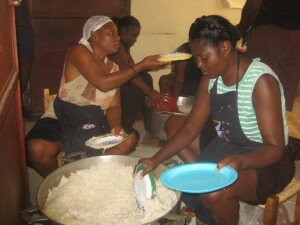
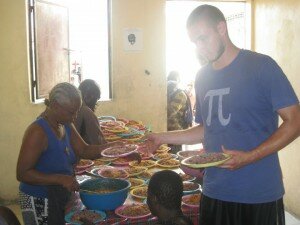 We fill the plates – we give more or less depending on the age – and give it to a person who places it on the table.
We fill the plates – we give more or less depending on the age – and give it to a person who places it on the table.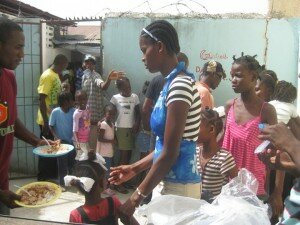 It is always fast and efficient with clear monitoring of who is getting what, with secret codes and rules for people arriving with their own bucket to fill in for families in distress who are not able to come to the window.
It is always fast and efficient with clear monitoring of who is getting what, with secret codes and rules for people arriving with their own bucket to fill in for families in distress who are not able to come to the window.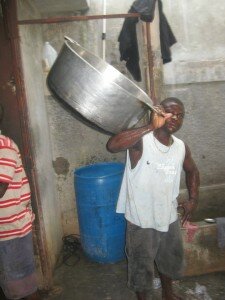 The rice bucket is empty? Let’s bring a new one.
The rice bucket is empty? Let’s bring a new one.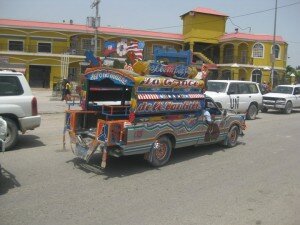 “Tap-tap” is the noise of the passengers’ heads knocking on the roof, the sound of their shoulders and arms hitting the metal borders of the truck bed or their neighbor’s body. It is also the noise of knocking on the roof or the window of the front seats to let the driver know that one of the passengers wants to stop.
“Tap-tap” is the noise of the passengers’ heads knocking on the roof, the sound of their shoulders and arms hitting the metal borders of the truck bed or their neighbor’s body. It is also the noise of knocking on the roof or the window of the front seats to let the driver know that one of the passengers wants to stop.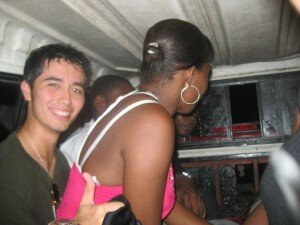 People give you a hand to catch a moving tap-tap still, find places for the pregnant women to sit, hold children on laps, hold a neighbor’s bag, pass on the money and the change, hold you and catch you if you are standing half bent over in between seated people under the low roof losing your balance at each pothole.
People give you a hand to catch a moving tap-tap still, find places for the pregnant women to sit, hold children on laps, hold a neighbor’s bag, pass on the money and the change, hold you and catch you if you are standing half bent over in between seated people under the low roof losing your balance at each pothole.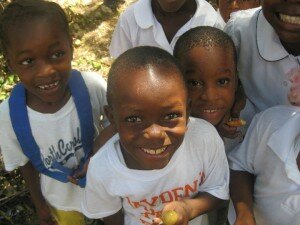 I know it is easy to say and not to do, but talking to the kids, to the students, to the youth in the tap-taps gives me the feeling that if somebody believes in their country and its resources, the Haitians may believe in it again too… How can we help?
I know it is easy to say and not to do, but talking to the kids, to the students, to the youth in the tap-taps gives me the feeling that if somebody believes in their country and its resources, the Haitians may believe in it again too… How can we help?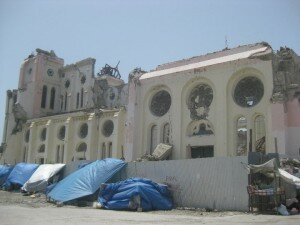 Immediately outside the airport exit, I saw camps and tents full of people.
Immediately outside the airport exit, I saw camps and tents full of people.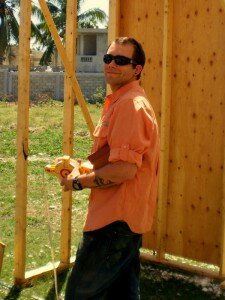
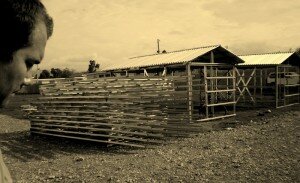 Right now I am somewhere over Kansas, flying home from another school transformation project, and I just finished editing my Haiti photos.
Right now I am somewhere over Kansas, flying home from another school transformation project, and I just finished editing my Haiti photos.
